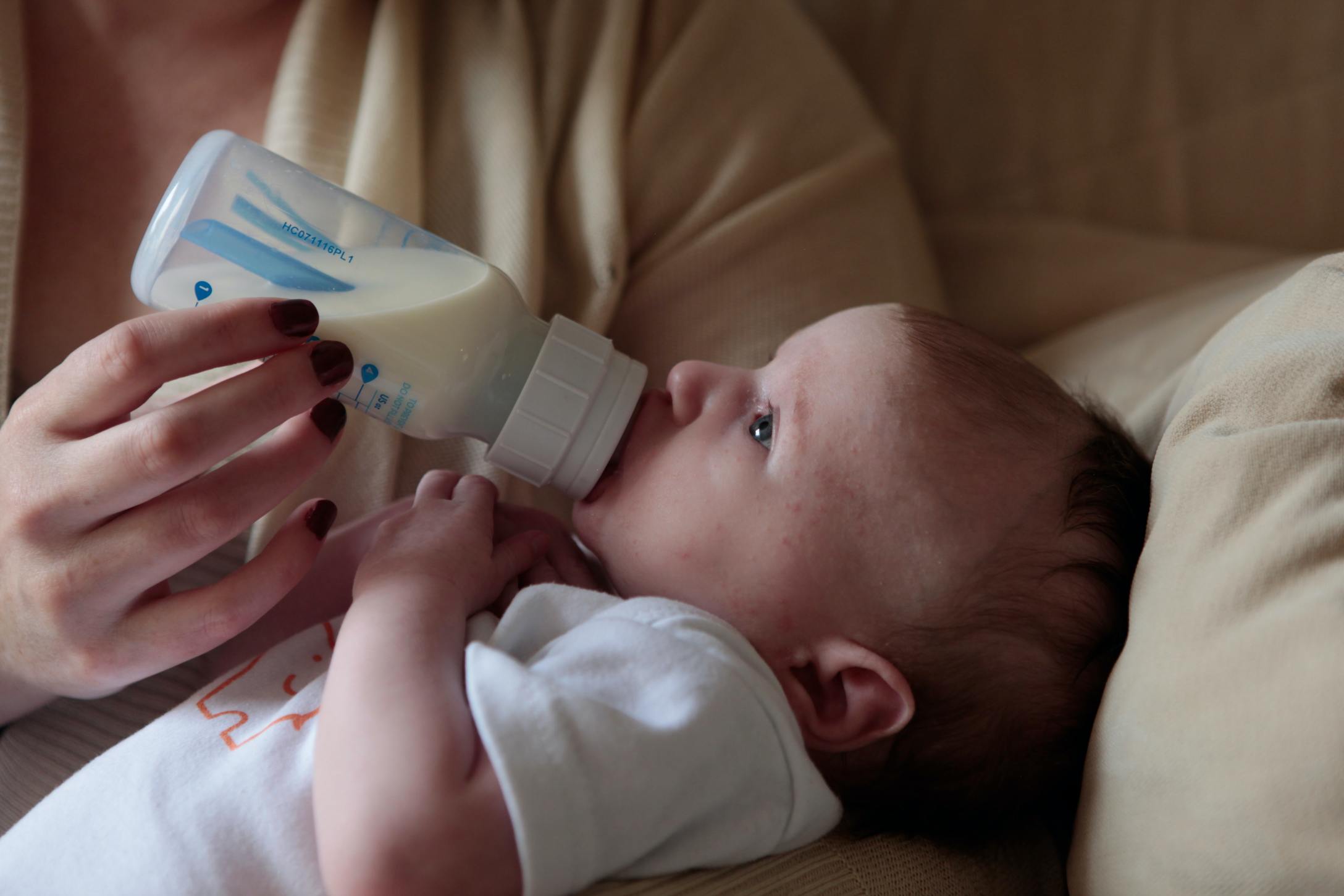
Across the United States, mothers and fathers of young children are facing an unfathomable crisis: a formula shortage. Although not all children are formula-fed as babies, a vast majority of families rely on formula to fulfill their children's nutrient and nourishment needs. Some moms breastfeed and formula feed when they do not produce the appropriate amount of breast milk for their child. And there are also those moms who choose to stop breastfeeding for other personal reasons and switch over to formula.
With brands and companies facing one of the worst shortages they’ve ever seen, it seems like an impossible task to simply ensure our children are fed. As parents, we want to ensure that kids are reaching their milestones, are healthy, and of course are well-fed.
But how do we make sure our children are getting the adequate amount of food when there are scarce, barren shelves in almost all of the grocery stores we go to?
Fortunately, pediatricians are here to help parents in understanding where they can go from here.
The formula shortage really hit hard in winter 2022.
After COVID-19 hit the US, manufacturers in all industries suffered delays and backorders due to shipping and production halts. Of course, baby formula was no different.
But in February 2022, Abbott Laboratories, the maker of several popular and widely used baby forumlas, closed a manufacturing facility in Michigan. The closure came after infant formulas were under a federal investigation following the death of two infants who contracted a bacterial infection from the formula. Closing the production facility really took a toll on production numbers and output of formula products.
While it seems like it's just "one company," it's actually a huge issue.
There are four major companies that hold the biggest pull in the formula sector. Abbott, Mead Johnson Nutrition, Nestlé USA, and Perrigo. Abbott happens to take up almost half of the baby formula market in the US. In addition, most of the baby formula used in the country is made in the US. Only 2% of formula is imported and with the market being controlled so strongly by these four powerhouses, not many new companies can break into the sector.
So, how are parents supposed to cope?
Many experts have been giving parents advice on how to handle the formula shortage. It's safe to say moms will likely feel more comfortable hearing from pediatricians and certified experts than anyone else. Fortunately, there are ways to keep our babies fed and healthy, even with the shortage.
Moms who are both formula and breastfeeding, should increase their feeds.
Elena Shea, MD, FAAP, IBCLC of Reston, Virginia, shared that breast milk is digested much faster and at a quicker rate in babies than formula. So moms who are both breastfeeding and formula feeding should increase their feeds if they are short on formula. "Remember, breast milk is digested in about 90 minutes, so it is not uncommon for a breastfed baby to want to nurse every 1.5 to 2 hours," Shea said.
What if moms struggle with milk production?
Some moms worry they won't produce enough milk to keep their baby fed on breastfeeding alone. Shea says that milk supply in women is based on "supply and demand."
As a refresher, our milk supply is built on supply and demand. The more milk that is removed, the more milk our body makes. In contrast, the more milk left in our breasts, the less milk our body makes. This is why it is so important, especially in the early days, to remove milk often and effectively.
And, what about moms who can't breastfeed?
If a mom cannot breastfeed, there are still ways to ensure babies are getting their needs met and staying nourished. Emily Wisniewski, MD, a board-certified pediatrician with Mercy Family Care Physicians in Baltimore, Maryland, says that if your brand is sold out on all shelves, try to find a similar version of a different brand. It may not be exactly the same, but if it's the same or similar version, it will most likely work for the child.
Moms can also look for different types of formula.
Katie Lockwood, MD, a primary care pediatrician at Children’s Hospital of Philadelphia, says that many formula brands make both powder and "ready made" versions of formula. If moms are using one type, switch to another type of the same brand, should they be able to find it. It will still work just as well and just the same for their baby.
When all else fails, ask around.
If moms are living in an area where there seems to be no formula in sight, using social media or asking friends can truly be a life saver. Some don't realize how powerful social media can be. Asking in parenting groups or even mom groups on Facebook and Reddit can land moms in the perfect place for trading or even buying formula from other parents who have extra, or some who have switched their brands completely.
We've all heard the saying: It takes a village!



